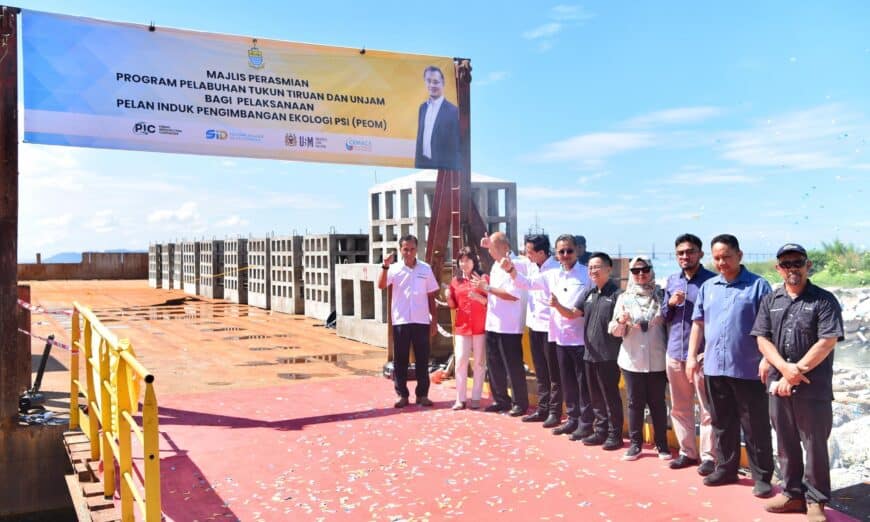THE Penang government has deployed artificial reefs and fish aggregating devices (FADs) in the waters off Pulau Kendi to help coastal fishermen increase their catch and restore the marine ecosystem.
This initiative is part of the Ecological Compensation Master Plan (PEOM) under the Silicon Island Development Project, a joint collaboration between the Penang Infrastructure Corporation (PIC), Silicon Island Development Sdn Bhd (SIDSB), and the Centre for Marine and Coastal Studies (Cemas) at Universiti Sains Malaysia (USM).
Penang Infrastructure Corporation (PIC) chief executive officer Datuk Seri Farizan Darus said the project, which falls under the Penang South Reclamation (Silicon Island) initiative, aims to ensure that development and environmental protection progress hand-in-hand.
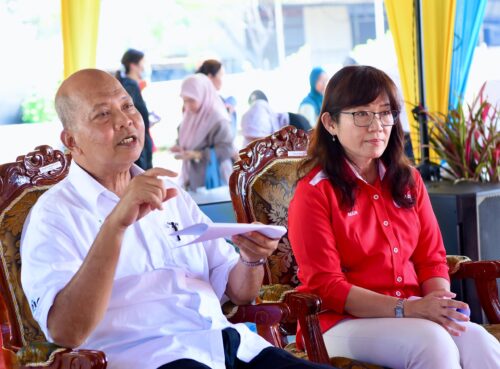
“The artificial reefs help create new marine habitats, while the FADs are used to attract fish.
“This is still in the early stages of implementation and is supported by the Penang Fisheries Department, the Fisheries Research Institute, and the Fisheries Development Authority. This initiative is expected to have a positive impact on the ecosystem,” he said during a press conference after officiating the event at Gat Lebuh Macallum today.
Farizan noted that the artificial reefs, to be deployed in the waters near Pulau Kendi, have already received approval from Cemas as a strategic location for deployment.
He emphasised the state’s commitment to preserving the coastal ecosystem and protecting the livelihoods of fishermen.
“This is a pilot project focused on enhancing marine biodiversity, while also prioritising the well-being and income of our fishermen,” he added.
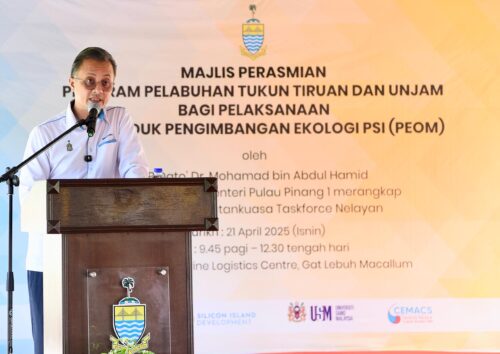
Deputy Chief Minister I and Fishermen Taskforce Committee chairman Datuk Dr Mohamad Abdul Hamid praised the initiative for its efforts in protecting the ecological environment and safeguarding the long-term interests of the fishing community.
“In addition to the deployment of artificial reefs and FADs, the Ecological Compensation Plan also includes mangrove planting, fish and shrimp release programmes, research grants, and coastal ecological improvements.
“To date, some 23,200 mangrove trees have been planted, and the shrimp release programme has entered its third phase,” he said.
At the same event, Abdul Hamid presented the Social Impact Management Programme Admission and Excellence Scholarships to 32 children of fishermen. He added that some of the fishermen have also been involved in assisting with project execution.
Meanwhile, Cemas chairman Prof Datuk Dr Aileen Tan expressed satisfaction with the progress of the pilot project.
“We hope to provide alternative habitats for marine life to enhance biodiversity and support the restoration of the ecological system.
“The artificial reefs and other devices used can help mitigate the negative impacts on the ecosystem,” she said.
Tan expects the initiative to result in a more sustainable income for coastal fishermen, adding that Penang is taking a leading role in marine ecological restoration.
Also present at the event was Pengkalan Kota assemblyman Wong Yuee Harng.
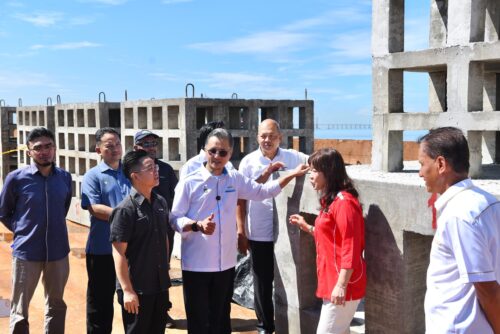
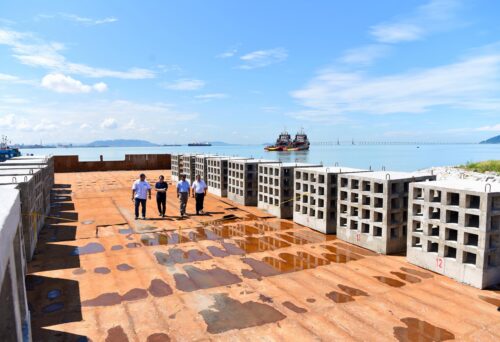
Story by Edmund Lee
Pix by Muhamad Amir Irsyad Omar

